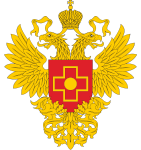
OPINION
The component of pathogenesis of sudden nocturnal death in patients with heart failure
Federal Scientific and Clinical Center for Children and Adolescents of the Federal Medical and Biological Agency, Center for Syncope and Cardiac Arrhythmias, Moscow, Russia
Correspondence should be addressed: Leonid M. Makarov
Moskvorechye, 20, Moscow, 115409, Russia; ur.liam@vorakamdinoel.rd
Patients with chronic heart failure (CHF) constitute the bulk of the group at the highest risk of sudden death (SD). The majority of SDs occur at night. However, CHF grade and ejection fraction do not always determine the risk of SD in the outcome of the disease. The following view has been expressed based on the research on the topic and the described mechanisms underlying SD: impaired QT interval adaptation (“hyperadaptation”: QT/RR slope > 0.24) to HR in patients with CHF who show maximum QT interval prolongation during the night, capable of triggering life-threatening ventricular tachyarrhythmias that trigger the mechanism of SD associated with CHF, can play some role. It is possible that identification of QT interval hyperadaptation in patients with CHF makes it possible to form the group at high risk of SD associated with HF and can become an additional indication for implantation of cardioverter-defibrillator.
Keywords: Holter monitoring, sudden death, heart failure, night, QT dynamics